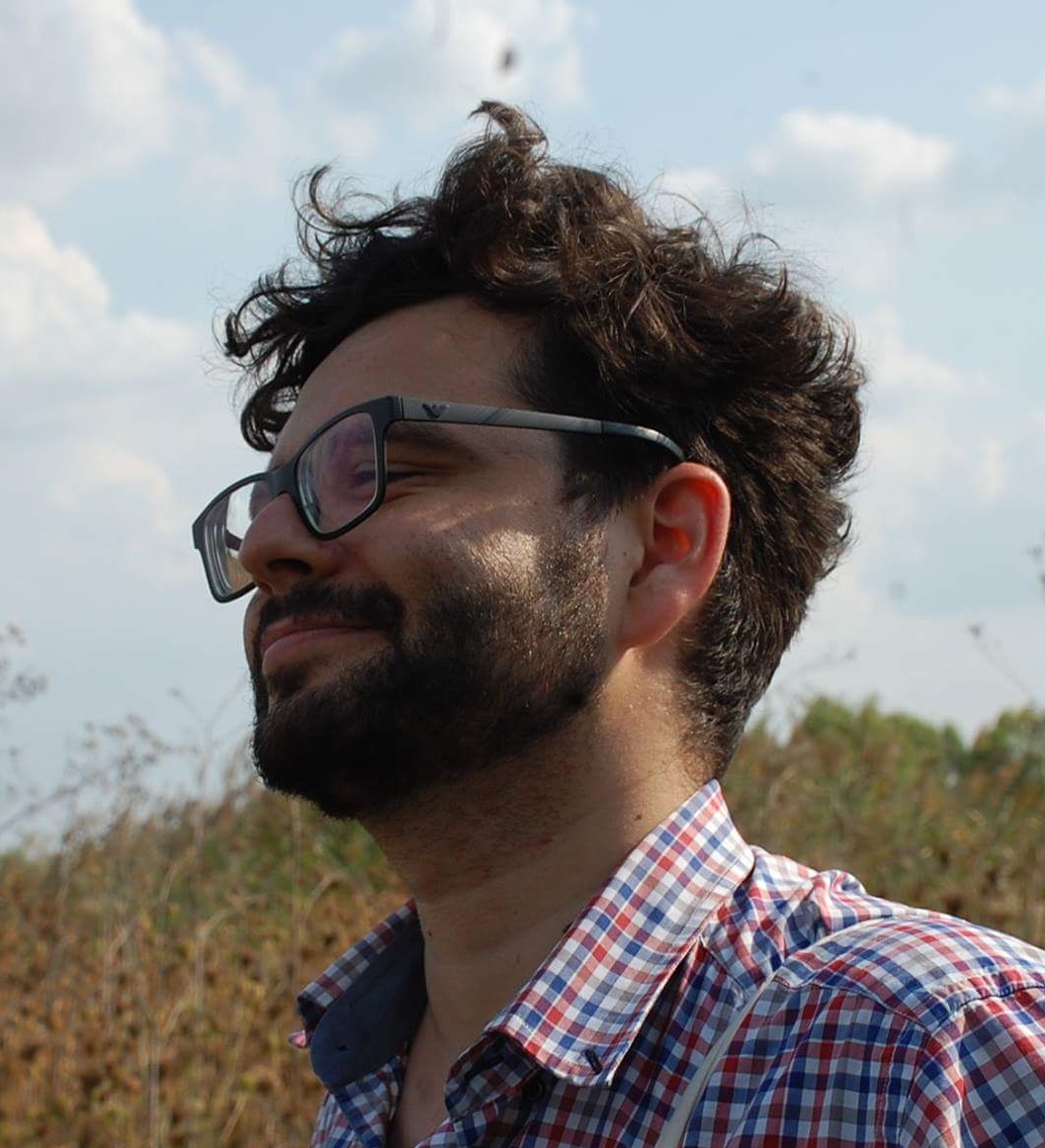Gruia Badescu, PhD
Curriculum Vitae
Education
PhD, University of Cambridge, Cambridge, UK
Centre for Urban Conflicts Research, Department of Architecture
MSc, London School of Economics and Political Science (LSE), London, UK
City Design and Social Science, the LSE Cities Programme
BA, Middlebury College, Vermont, USA
Double major in Geography and European Studies
Academic appointments and research grants
2016-2018 Research Associate, School of Geography, University of Oxford
2016- AHRC-LABEX team research grant “The Criminalisation of Dictatorial Pasts in Europe and Latin America in Global Perspective”, for project “Memorializing Political Prisons of Past Dictatorships: Processes from Below”
2017-2018 Visiting Lecturer, Department of Political Science, National School of Political Science and Public Administration, Bucharest
2016-2017 Researcher, New Europe College, for UEFISCDI-funded project “Museums and controversial collections: Politics and policies of heritage-making in post-colonial and post-socialist contexts”,
2015-2016 Departmental Lecturer, School of Geography, and Stipendiary Lecturer in Human Geography, St John’s College and Christ Church, University of Oxford
Field of Research
- post-war reconstruction: urban reconstruction, refugees and IDPs
- coming to terms with the past after war and dictatorship, transitional justice, political emotions, memory practices
- the relationship between memory and urban space
Publications
‘Transnational place-making after political violence: Agencies and practices of site memorialization in the Latin American Southern Cone’ (forthcoming 2020) in Aline Sierp and Jenny Wüstenberg (eds), Agency in Transnational Memory Politics. New York: Berghahn.
‘Cosmopolitan Heritage? Post-War Reconstruction and Urban Imaginaries in Sarajevo and Beirut’ (forthcoming 2020) in Marco Folin and Heleni Porfyriou (eds.) Multi-ethnic Cities in the Mediterranean World, 19th -20th Centuries. Controversial Heritage and Divided Memories, Abingdon: Routledge.
‘Traces of Empire: Architectural Heritage, Imperial Memory and Post-War Reconstruction in Sarajevo and Beirut’ (2019), History and Anthropology, 30 (2019), Vol 4. pp. 366-38. DOI:10.1080/02757206.2019.1617708.
‘Entangled Islands of Memory: Actors and Circulations of Site Memorialisation Practice Between the Latin American Southern Cone and Central and Eastern Europe’ (2019). Global Society, 33 (3), pp. 1-18.
‘Urban Monuments and the Spatialization of National Ideologies’ (with Vjeran Pavlaković) (2019). In Zlatan Krajina and Deborah Stevenson (eds.) The Routledge Companion to Urban Media and Communication. Abingdon: Routledge, pp. 67-80.
‘Making Sense of Ruins: Architectural Reconstruction and Collective Memory in Belgrade’ (2019) Nationalities Papers, 2, pp. 182-197.
‘Between Repair and Humiliation: Religious Buildings, Memorials, and Identity Politics in Post-war Sarajevo’ (2019) Journal of Religion & Society, 19, pp. 19-37.
‘Curating Change in the Museum’ (with Simina Bǎdicǎ and Damiana Oţoiu) (2018). Martor, Vol 23, pp. 1- 239.
‘Post-War Reconstruction in Contested Cities: Comparing Urban Outcomes in Sarajevo and Beirut’. In Jonathan Rock-Rokem and Camilo Boano (eds.) (2017) Urban Geopolitics: Rethinking Planning in Contested Cities. London: Routledge, pp. 17-32.
‘Justice, transition, mémoire: Les universités et les enjeux du passé dictatorial dans la société roumaine’ (2016) in Mohsen El Khouni, Mouldi Guessoumi, Mohamed-Salah Omri (eds.). University and Society in the Context of Arab Revolutions and New Humanism. Tunis: En Toutes Lettres, pp. 115-131.
‘“Achieved without Ambiguity?”: Memorializing Victimhood in Belgrade after the 1999 NATO Bombing’ (2016) Memories and Narratives of the 1999 NATO Bombing (special issue) Südosteuropa. Journal for Policy and Society, 64(4), pp. 500-519.
‘(Post) colonial Encounters in the Post-Socialist City: Reshaping Urban Space in Sarajevo’ (2016) Post-socialist Cities (Special Issue). Geografiska Annaler: Series B, Human Geography, 98 (4), pp. 321-329.
‘Dwelling in the Post-War City: Urban Reconstruction and Home-Making in Sarajevo’ (2015) Revue d’études comparatives Est-Ouest, 46(04), pp.35-60.
‘City Makers, Urban Reconstruction and Coming to Terms with the Past in Sarajevo’ (2014) In Kotzen, Bronwyn and Sofia Garcia (ed.) Reconstructing Sarajevo: Negotiating Socio-political Complexity. London: LSE Cities.
‘Beyond the Green Line: Sustainability and Beirut's post-war reconstruction’, Development (2011) 54(3), pp. 358–367.
‘Politics, Architecture and Identity in Rebuilding West Germany’ s Cities after the Second World War’ (2011) In Olga Fejtová et al, eds. Europäische Großstädte zwischen dem Ende des Weltkriegs und des Kalten Kriegs (1945-1989) (Documenta pragensia 30) Prague: Scriptorium, pp. 85-133.
‘Introduction: Nationalism between 1770 and 1880’ (with Guntram Herb) (2008) in Guntram Herb and David Kaplan (eds.) Nations and Nationalism: A Global Historical Overview. Santa Barbara, CA: ABC Clio, xvii-xx.
‘Nationalism between 1880 and 1945’ (with Guntram Herb) (2008) in Guntram Herb and David Kaplan (eds.) Nations and Nationalism: A Global Historical Overview. Santa Barbara, CA: ABC Clio, Vol. 2, xvii-xx.
Project "Syncretic place-making and cosmopolitan imaginaries in the European city"
In an increasingly diverse Europe, there are calls for both city-making and memory-work to engage more with the plurality of resident experiences and backgrounds. This project interrogates the emergence of new memory practices, which I call syncretic place-making, shaped by initiatives and movements from below to include diverse voices in the negotiation and representation of the past. It examines the role of cities in reshaping European memory by analysing how city-makers respond to new socio-political and cultural conditions through the production of places and memory practices that include concerns for diversity. Moreover, it scrutinizes how these approaches relate to an EU-scale support for a cosmopolitan memory, as well as how they link places transnationally. I discuss several situations of memory place-making centred around concepts of cosmopolitan imaginaries and practices of diversity, corresponding to different scenarios on the European continent. These include syncretic memory place-making both in cities experiencing high migration in Western Europe and in cities featuring historical diversity challenged by conflict (Sarajevo), cosmopolitan enactments as part of practices of Europeanization (Alba Iulia), and transnational place-making (Barcelona and beyond), highlighting a diverse continent with localized, yet entangled memory practices.

Contact
Fon: * 49 (0)7531 88-5821
E-Mail: gruia.badescu[at]uni-konstanz.de
Bischofsvilla
Otto-Adam-Str. 5
78467 Konstanz
